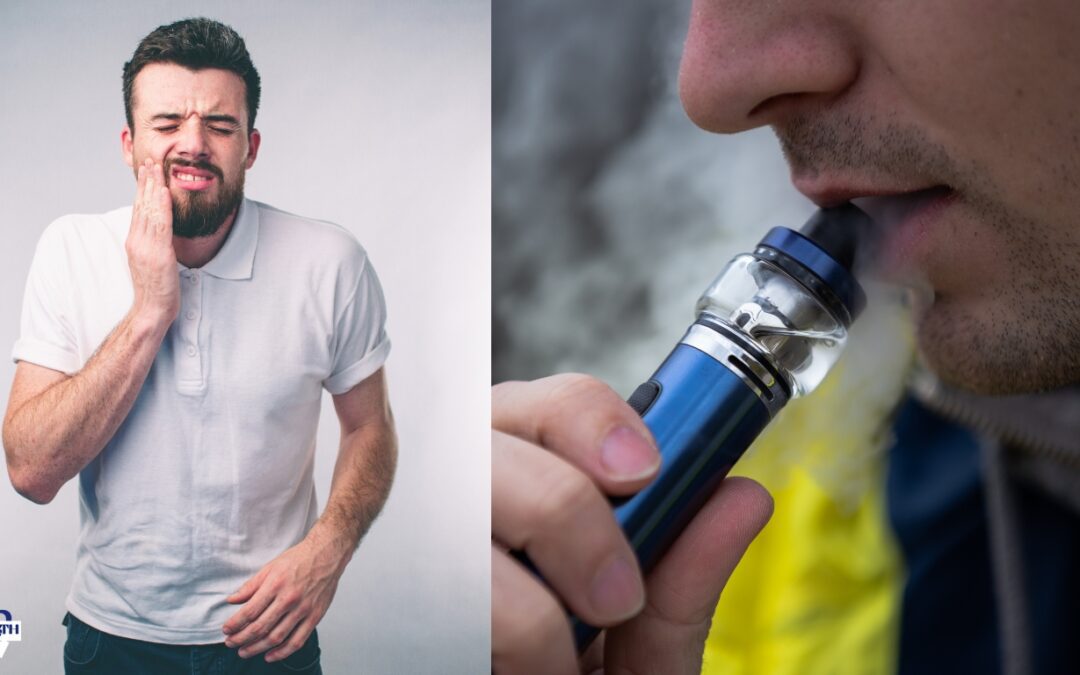Does Vaping Make Your Teeth Hurt, the practice of vaping has gained popularity as a replacement for traditional smoking. But as it becomes more and more popular, worries about how it can affect one’s health—more especially, dental health—have emerged. In order to examine the relationship between vaping and oral health, we examine the subject, “Does vaping make your teeth hurt?” in this article.
Table of Contents
Here effects are described below
What is the Effect of Vaping on Teeth?
Reduced Saliva Production and Dry Mouth
The first effect when you are worries about, “Does vaping make your teeth hurt?” is that the vaping contributes to reduced saliva production and dry mouth by disrupting the natural moisture balance in the mouth. Reduced salivary production is a symptom of dry mouth, which is brought on by vaping. Because saliva helps wash away food particles and neutralize acids, it is essential for maintaining oral health and preventing tooth decay.
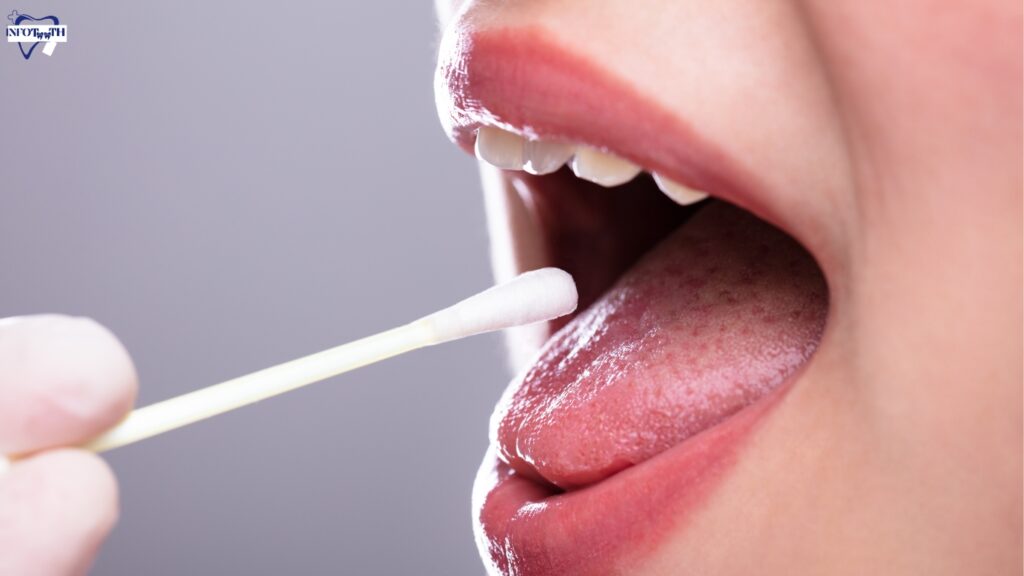
Teeth Grinding Caused by Nicotine
The hilarious effect when you are worries about, “Does vaping make your teeth hurt?” Nicotine, which is commonly found in e-cigarettes, has the potential to cause bruxism, or teeth grinding. Because bruxism wears down tooth enamel, it can cause discomfort and sensitivity in the teeth. Nicotine stimulates the nervous system, leading to increased jaw clenching. This repetitive action can result in teeth grinding, potentially causing dental issues and discomfort.
Gum Inflammation and Periodontal Problems
Vaping, with its aerosolized nicotine and harmful chemicals, can contribute to gum inflammation and periodontal issues. This is the effect when you are worries about, “Does vaping make your teeth hurt? Research indicates that vaping may be related to gum inflammation. Gum inflammation has the potential to worsen into more significant periodontal problems, which can impact general oral health.
Effects of E-Liquid Ingredients
The effect of E-Liquids when you are worries about, “Does vaping make your teeth hurt?” Unknown effects on oral tissues may result from the variety of chemicals present in e-liquids. The long-term effects of breathing these chemicals on teeth and gums are still being studied. E-liquid ingredients, like propylene glycol and glycerol, may impact dental health. Their presence in vaping solutions can contribute to an environment conducive to bacterial growth, potentially leading to oral health issues such as cavities and gum problems.
Enhanced Risk of Cavities
Vaping increases the risk of cavities by altering oral conditions. It is the effect when you are worries about, “Does vaping make your teeth hurt?” Oral health is compromised by the e-cigarettes’ aerosolized particles, which provide bacteria with an ideal habitat. The combination of dry mouth and the sugars and acids included in some e-liquids can provide an environment that is favorable to the growth of cavities. In addition to causing tooth discomfort, cavities can worsen other dental issues if they are not treated.
What is the Connection Between Vaping and Dental Health?
This popular smoking substitute has raised concerns over vaping’s effects on dental health and begs the question, “Does vaping make your teeth hurt?” Vaping and dental health are related, and there may be risks associated with it, according to recent studies.
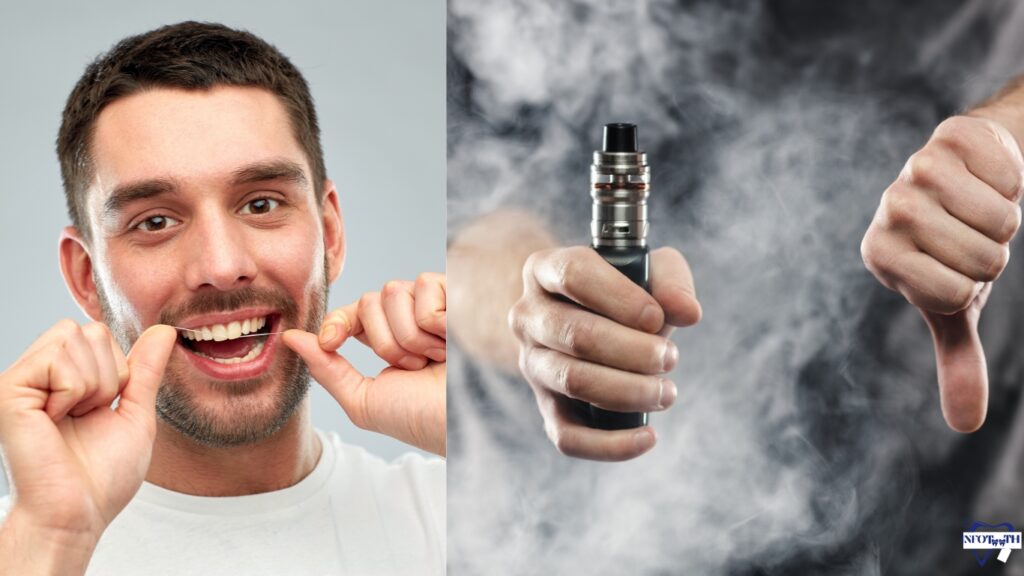
Chemicals found in vaping liquids are one of the main causes of dental problems among vapers. Common ingredients like glycerin and propylene glycol may be harmful to teeth. They can contribute to plaque buildup, potentially leading to tooth decay. Propylene glycol, known for its moisture-retaining properties, may cause dry mouth, reducing saliva’s natural protective effects against bacteria.
Another factor in the dental equation is the flavorings used in vaping liquids. Certain flavorings improve the vaping experience, but they may be bad for your teeth. This complex relationship between vaping and dental health emphasizes how crucial it is to comprehend the ingredients in vape liquids and how they may affect oral health.
What is Nicotine’s Effect on Dental Health?
Does vaping make your teeth hurt? Yes, Many vaping liquids contain nicotine, which has drawn attention due to possible effects on tooth health. Nicotine’s importance in the complicated and multifaceted relationship between vaping and tooth discomfort cannot be understated. The first effect when you are worries about, “Does vaping make your teeth hurt?” It depends on presence of nicotine.
Research indicates that nicotine could be a factor in a number of dental conditions, such as gum disease and tooth sensitivity. It effects the food digestion and digestive system.
Nicotine’s vasoconstrictive qualities, which can result in less blood flowing to the gums and other oral tissues, are one main cause for concern. The body’s capacity to fight infections and repair injured tissues may be hampered by this reduced blood supply, which raises the possibility of oral health problems.
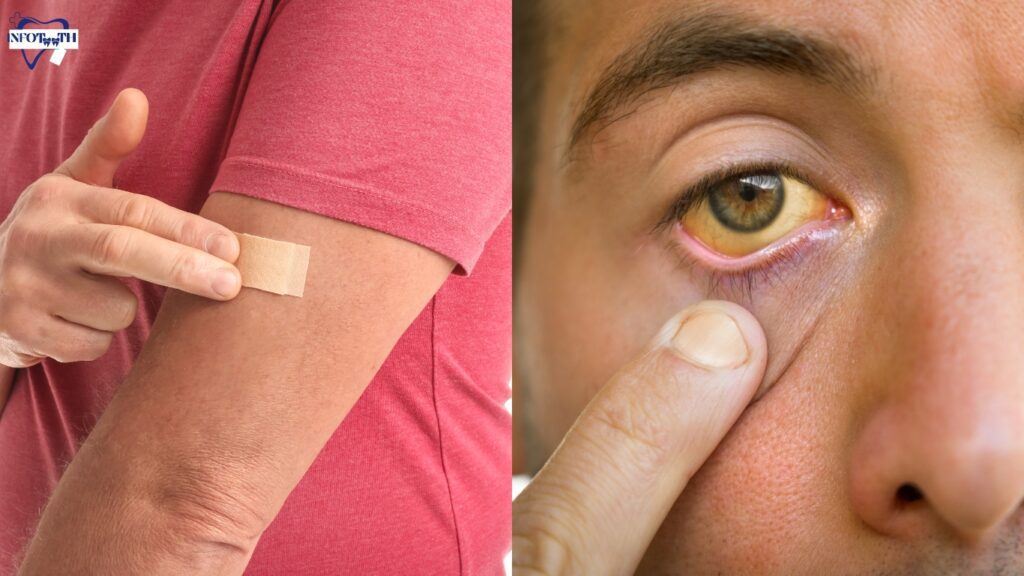
Moreover, nicotine may aggravate dry mouth, a typical vaping side effect. Dry mouth is an issue since saliva is essential for preserving dental health because it neutralizes acids, removes debris, and stops the growth of dangerous bacteria. There is a higher chance of gum irritation and tooth decay when saliva production is impaired.
Does Vaping Cause Dry Mouth?
The growing trend of vaping as a substitute for traditional smoking has sparked worries about how it can affect oral health, particularly with regard to dry mouth. “Does vaping make your teeth hurt?” Not only hurts but causes dry mouth. When the salivary glands are unable to generate enough saliva to keep the mouth sufficiently moist, the condition known as dry mouth, or xerostomia, results. In addition to causing pain and difficulties swallowing, this dehydration may also have an adverse effect on oral health.
Does Vaping Make Your Teeth Hurt; Various ways inhaling the vapor from e-cigarettes might aggravate dry mouth. Propylene glycol, a common ingredient in e-liquids, is one important component. When vaporized, this substance may have a drying effect, lowering the mouth’s natural moisture content. Furthermore, because the experience of inhaling may not cause the same salivary reaction as eating or drinking, vaping itself may result in a decrease in saliva production.
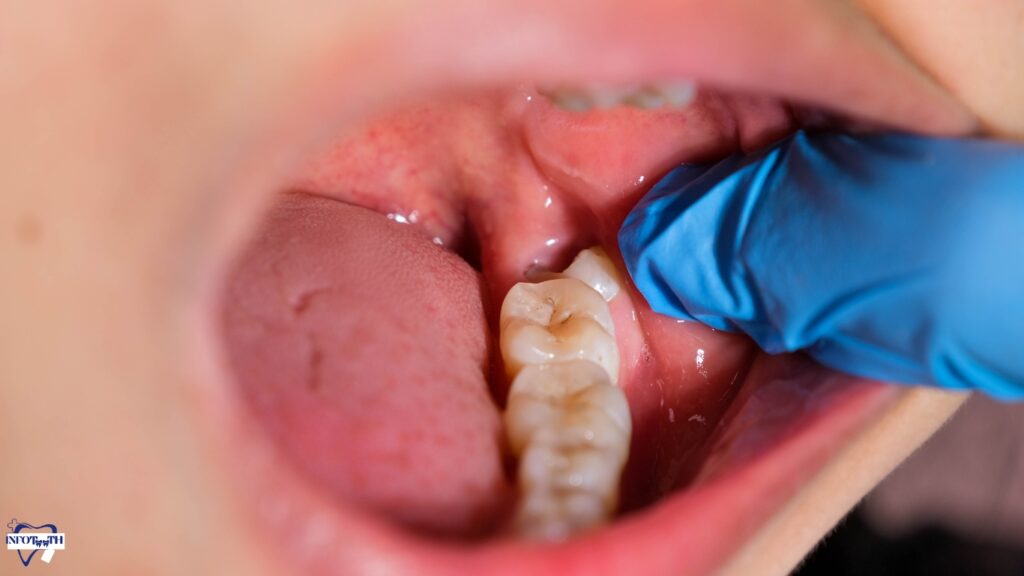
It is impossible to exaggerate the importance of dry mouth to tooth health. Because saliva removes food particles from teeth, neutralizes acids, and helps to normal the tooth enamel, it is essential for maintaining good dental hygiene. As a result, vaping’s decreased salivary flow may raise your risk of gum disease, tooth decay, and general discomfort.
Can Vaping Make Your Teeth Fall Out?
Concerns about vaping’s possible effects on dental health go beyond just discomfort; they also include the risk of tooth loss and degeneration. The intricate interactions between the chemicals included in vaping liquids are the reason behind the link between dental issues and vaping. One common ingredient that might lead to decreased blood flow and jeopardize the general health of teeth and gums is nicotine.
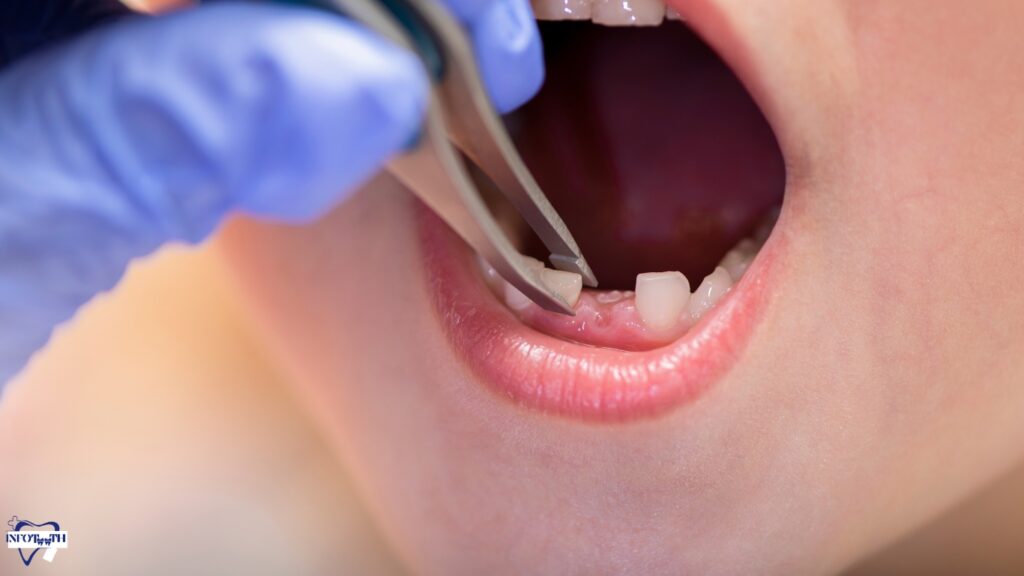
Additionally, the common adverse effect of vaping, dry mouth, increases the risk of dental problems. In order to neutralize acids and preserve a healthy mouth environment, saliva is essential. Because vaping causes dry mouth, which reduces saliva production, germs can increase in this environment and cause dental decay and, in extreme circumstances, tooth loss.
Inhaling the chemicals present in vaping liquids can harm the soft tissues of the mouth. Studies suggest that the aerosolized compounds may contribute to oral health issues, including irritation and inflammation. Continuous exposure to these substances through vaping may pose risks to gum health and oral mucosa. It is crucial to be aware of the potential negative impact on oral tissues and consider the broader health implications associated with vaping.
Does Vaping Make Your Teeth Hurt and Yellow?
Does vaping make your teeth hurt and yellow? It depends on the nicotine found in vaping liquids is the reason behind the link between vaping and yellow teeth. In addition to its addictive qualities, nicotine can eventually discolor teeth. Nicotine reacts with the enamel over time, discoloring it gradually and giving it a yellow or brownish hue.
Tooth discoloration may also result from other ingredients in vaping liquids, such as flavorings and certain compounds. Staining is encouraged by the combination of these factors, as well as the decrease in saliva flow brought on by vaping.
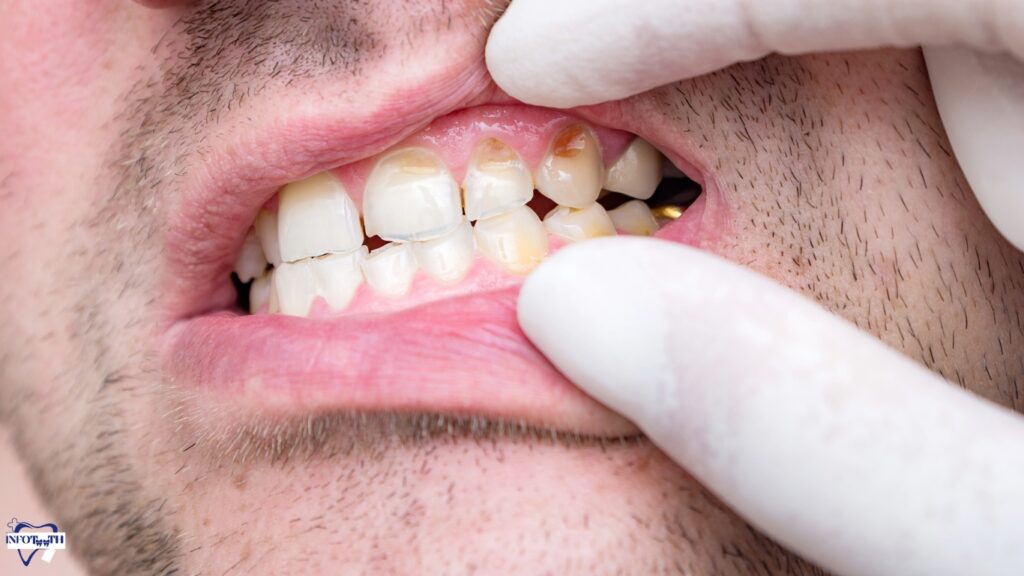
Knowing the connection between vaping and tooth discoloration highlights how crucial dental care is for vapers. Proactive measures that can reduce the risk of dental issues and tooth discoloration linked with vaping include:
1-Practicing good oral hygiene.
2-Making frequent dental checkups.
3-Thinking about lower-nicotine or nicotine-free options.
If I Stop Vaping will my Teeth Stop Hurting?
You may be asking, “If I stop vaping, will my teeth stop hurting?” if you suffer from excruciating tooth pain. Although there is a complicated link between vaping and tooth pain, giving it up for a while may help ease your discomfort. Does vaping make your teeth hurt? Not only hurt but many dental problems, including dry mouth, gum inflammation, and possible tooth sensitivity, have been linked to vaping. Nicotine, one of the compounds included in vaping liquids, maybe a contributing factor to these issues. Because of its vasoconstrictive qualities, nicotine can alter blood flow to the gums and have an adverse effect on the general health of your oral cavity.

You can allow your dental health to recuperate by quitting vaping. Reducing the amount of toxic chemicals you consume and giving your body time to acclimate could help ease dental discomfort. Individual reactions do differ, though, so it’s important to speak with a dentist for specific guidance.
Quitting vaping offers substantial dental health benefits. Vaping exposes the mouth to harmful chemicals, increasing the risk of gum disease, tooth decay, and oral infections. By abstaining from vaping, individuals safeguard their oral hygiene, reducing the likelihood of stained teeth, bad breath, and overall dental issues. This positive step promotes healthier gums and teeth, contributing to a brighter smile and improved long-term oral well-being.
Conclusion
In conclusion, there is a complex relationship between vaping and tooth health. Does vaping make your teeth hurt? It can lead to the effort of vapers that can take proactive measures to reduce potential problems, even though there are certain dangers. Those who decide to vape must be knowledgeable, mindful of their oral health, and seek professional counsel.
FAQs
Q: Can vaping cause irreversible dental damage?
A: Although studies are still being conducted, some point to a possible connection between vaping and long-term dental problems. Maintaining knowledge and making dental health a priority is essential.
Q: How can vapers reduce the sensitivity in their teeth?
A: Teeth sensitivity brought on by vaping can be lessened by practicing proper dental hygiene, using toothpaste made specifically for sensitive teeth, and seeing a dentist.
Q: Does vaping without nicotine mean that there are no dental hazards?
A: While vaping without nicotine may lower certain risks, its overall effect on dental health is currently unclear. Periodic dental examinations are still necessary.
Q: Are there certain e-liquids in particular that are less damaging to teeth?
A: A few studies indicate that some e-liquids might be less hazardous than others, but more thorough research is required. Select reliable products and pay attention to the ingredients.
Q: Should people who have dental problems abstain from vaping completely?
A: Before vaping, people with pre-existing dental issues should speak with their dentists. The optimal course of action can be ascertained with the use of tailored counsel.

